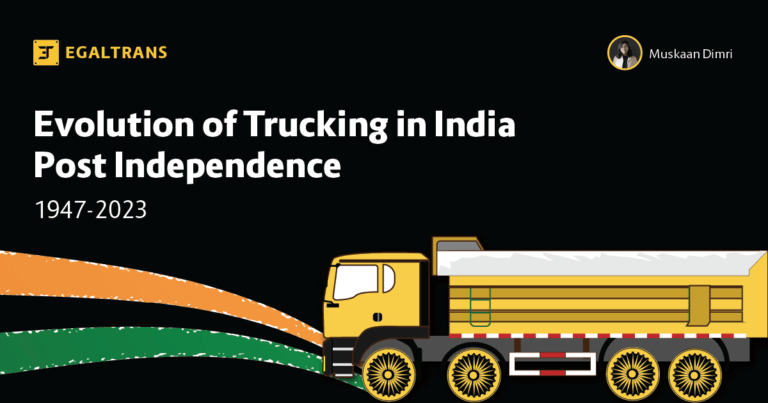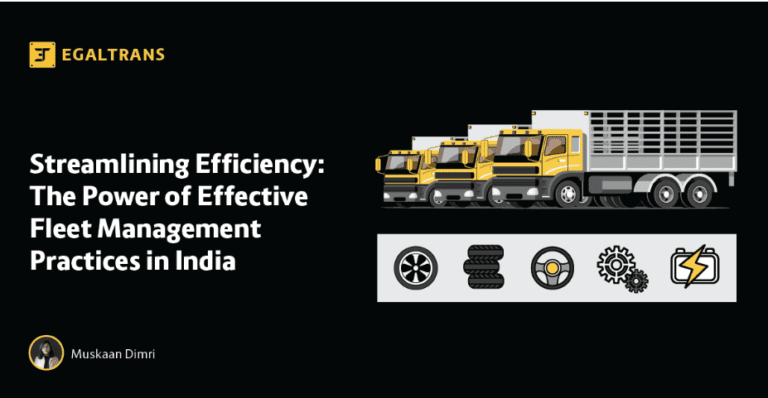What’s Causing Trucking Recession
The domino effect of reduced retail sales and less factory demand has largely affected the freight industry. The earnings in the Q1 of 2023 reveals the hit to the trucking industry has taken with reduced freight, poor industry conditions leading to the ‘Trucking Recession’. These testing times have really affected the truckers and the workers, stubbornly high inflation and rising interest rates have caused consumers to cut back on spending. A leader’s natural response to difficult circumstances is to cut costs and revert to traditional thinking and therefore technological advancements have set their foot in order to bring back the business and promote cost effective measures in the industry to reshape trucking.
How are Truckers Adapting?
The intervention of technological advancements have emerged as a powerful strategy, especially during economic downturns. As recessions cast a shadow on traditional industries, the trucking landscape is undergoing a transformation, thanks to innovative technologies that enhance efficiency, reduce costs, and ensure resilience.
1. Autonomous Vehicles:
One of the most significant technological shifts in trucking is the integration of autonomous vehicles. During recessions, companies face increased pressure to cut costs, and autonomous trucks offer a solution by reducing the need for human drivers. This not only addresses the labor shortage but also enhances safety and efficiency. Companies like Waymo and Tesla are making strides in autonomous trucking, providing a glimpse into the future where convoys of self-driving trucks navigate the highways. Autonomous vehicles are at the base of technology trying to reshape trucking industry.
2. Predictive Analytics:
In times of economic uncertainty, predictive analytics play a crucial role in helping trucking companies optimize routes, manage fuel consumption, and predict maintenance needs. By harnessing the power of big data, companies can make informed decisions that save both time and resources. Predictive analytics not only streamline operations but also contribute to sustainability by minimizing environmental impact.
3. Internet of Things (IoT) Sensors:
IoT sensors have become integral in tracking and monitoring freight. These sensors provide real-time data on temperature, humidity, and location, ensuring the integrity of the cargo. During recessions, where every penny counts, IoT sensors help minimize losses due to damaged or spoiled goods, adding a layer of reliability to the transportation of goods.
4. Advent of Financial tools:
Amidst economic downturns, financial tools tailored for the trucking industry have become indispensable, aiding companies in maintaining stability and fostering growth during recessions. One such tool is predictive analytics software, exemplified by platforms like FreightWaves SONAR. This tool aggregates real-time market data, enabling trucking businesses to anticipate market trends, optimize routes, and strategically allocate resources. Additionally, invoice factoring services, such as those offered by companies like Triumph Business Capital, have emerged as lifelines for trucking companies facing cash flow challenges. These services allow businesses to convert outstanding invoices into immediate working capital, ensuring a steady stream of funds to cover operational expenses and fuel costs even in the face of economic downturns.
Meet Transport Solutions, a leading trucking company, embraced technological advancements to weather the storm during the recent economic downturn. By implementing a comprehensive fleet management system that included autonomous vehicles, predictive analytics, and IoT sensors, Meet Pvt. Ltd. achieved a remarkable 20% reduction in operating costs. The autonomous trucks optimized delivery routes, while predictive analytics allowed for proactive maintenance, preventing costly breakdowns. IoT sensors ensure the integrity of perishable goods, enhancing customer satisfaction and loyalty.
In conclusion, technological advancements are known to reshape trucking landscape, providing a lifeline for the industry during recessions. Companies that embrace these innovations not only survive economic downturns but also position themselves as leaders in an ever-changing market. As we navigate the future, the fusion of technology and trucking promises a more resilient and efficient industry.






[…] How is fleet management evolving […]